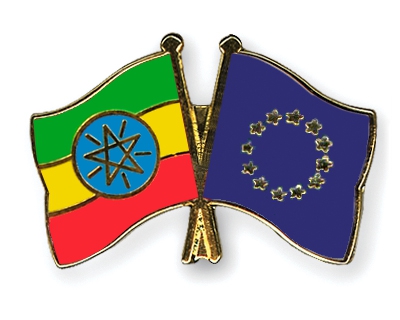Thirty-eight Members of the European Parliament sent a letter to the EU’s High Representative for Foreign Affairs, Federica Mogherini, last week complaining that Ethiopia has refused to allow an independent investigation into last year’s demonstrations and protests. The MEPs, whose concern appears to be that the investigation of the Ethiopian Human Rights Commission (EHRC) did not support their views, alleged, without any evidence, that the impartiality of the EHRC was “questionable” and described its report as “highly controversial for significant reasons: not only does it underestimate the number of casualties, but it also considers the security measures taken as mostly ‘fair and proportional.” Their letter, unsurprisingly, provided no evidence for their assertions.
In fact, as the Government noted last month in response to concerns expressed earlier, the EHRC investigated in detail the allegations of the numbers who died during the protests and whether the force used had been proportional. The EHRC found this had been proportional in most cases, but not all; the report called for action to be taken in cases where this had not been the case. The Government also noted the changes being introduced in response to the legitimate concerns raised by protesters last year. Although the MEPs took no notice of these, they included inter alia talks with some 17 opposition parties, consideration of proportional representation in voting and the launch of the country’s second National Human Rights Action Plan.
In addition to claiming the casualties last year must have been higher than the report finds, the MEP letter also demanded those detained for exercising “their legitimate freedom of expression” must be released. In fact, as the MEPs might have noted, many of those involved in the demonstrations were detained for a short time and given training courses in the responsibilities, and duties, of citizens. They have all been released. Those still detained are facing charges for violence or other criminal activities. The killing of people and the destruction of property hardly fall under the rubric of “legitimate freedom of expression” even in today’s Europe.
The MEPs letter also refers to the case of Andargatchew Tsige which they describe as “a UK citizen and father of three from London. Andy is a campaigner who had previously addressed the European Parliament on the need for freedom and democratisation in Ethiopia.” The MEPs fail to mention that Andargatchew was Secretary-General of Ginbot 7, a political organization based in Eritrea, publicly committed to overthrowing the government of Ethiopia by armed force and by “any means possible”. They also failed to note that Ginbot 7 has been declared a terrorist organization by the Ethiopian parliament because of the dozens of terrorist activities it has committed against civilians in Ethiopia, including the bombing of hotels and other public places, the planting of mines on roads, and blowing up buses and lorries as well as carrying out a program of kidnapping people from villages close to the Eritrean border to try and recruit supporters. As Secretary-General to Ginbot 7, Andargatchew was closely involved in these activities.
The MEPs signing this letter, as might be expected, include at least one very well-known opponent of the Ethiopian Government, Ms. Ana Gomes, who does not seem to have declared her interest in the subject. She is a close friend of the Chairman of Ginbot 7, Dr. Berhanu Nega, and she has been repeatedly and openly linked to opposition movements that avow armed intervention in Ethiopia. Indeed, as noted, Ginbot 7 has been frequently involved in terrorist activity. Ms. Gomes has made no secret of her dislike of the government of Ethiopia ever since her report as Chair of the EU Observer Mission to the 2005 elections in Ethiopia was comprehensively and critically dismissed as inaccurate and unprofessional.
Read more:




